Orange Knowledge Impact Series - Liveblog #4
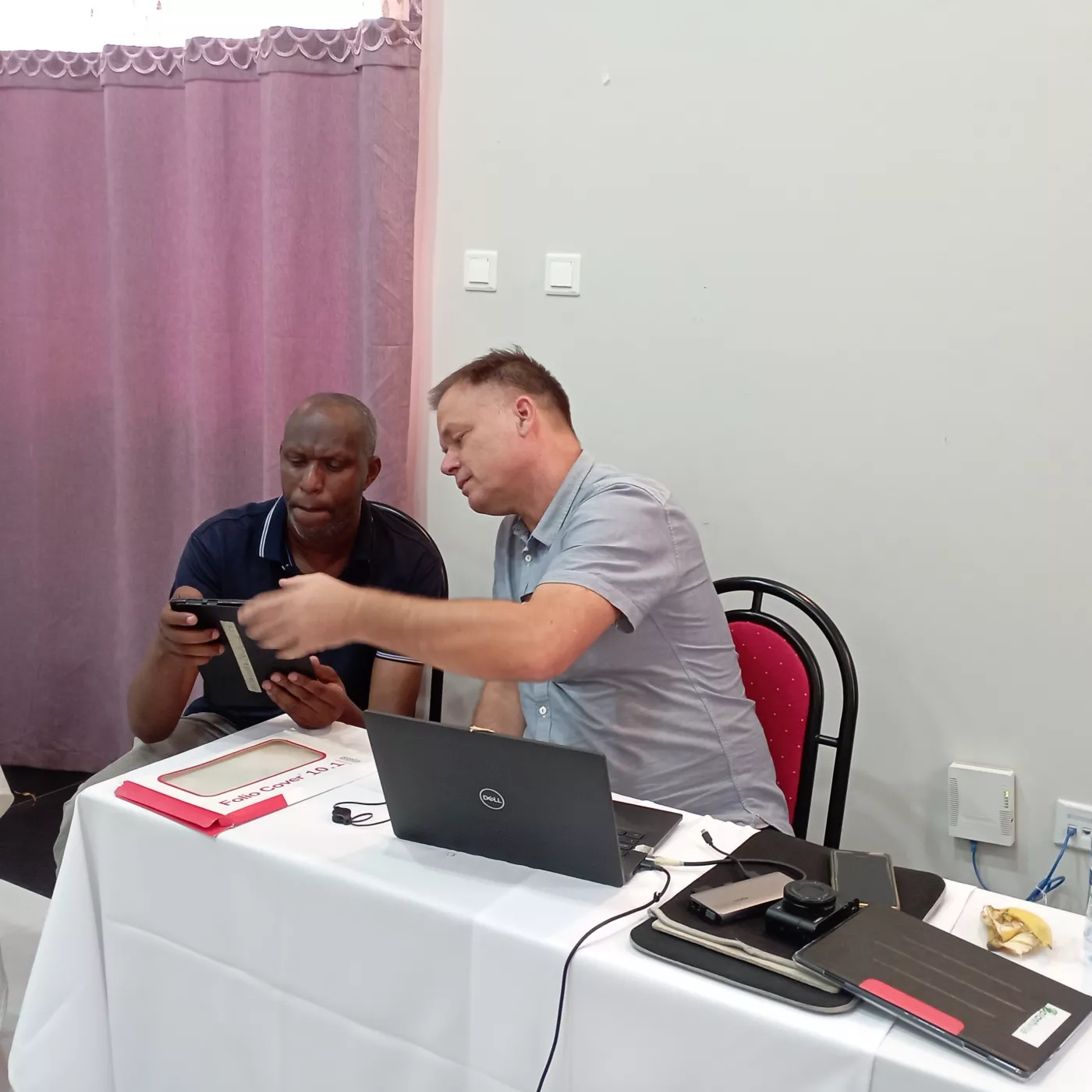
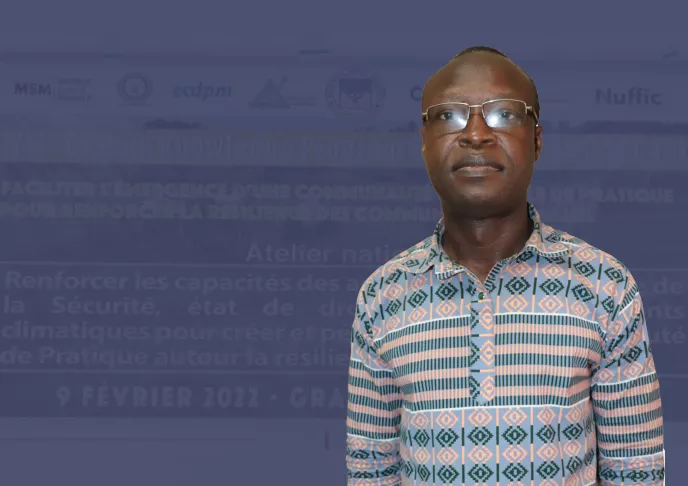
Week #30
Mali: Resilience Strengthening of Communities in the Sahel
Caravanning throughout the Sahel region to sthrengthen laws .
Meet Mamoudou Samassekou, a university teacher and researcher from Mali. As an expert in legal advising, he know how important is for people to be familiar with their local laws. In his view, improved understanding towards the local legal system can lead to less violence, and moreover less disrespect to human rights. Mamoudou is active within the #OrangeKnowledge Programme, as a great ambassador to both human rights and local laws.
As a participant of a special training programme called “Facilitating the emergence of a regional community of practice to strengthen community resilience in the Sahel”, he is passionate in making a change. In the training sessions, Mamoudou works together with others to analyse local government systems and identify common legal issues.
Their goal? To improve human rights by proposing appropriate solutions to crimes, violations and misconducts! By connecting with legal professionals from Mali, Burkina Faso and Niger, Mamoudou is able to learn from other people’s real-life experiences. Mamoudou learns how other law systems deal with violations and how others executed suitable solutions for issues within their communities. He is also an active counsellor in a legal clinic that travels in a caravan around his region to give free legal advice and information to locals.
Through this training programme, individuals like Mamoudou are generating impact for their communities by implementing their strengthened capacities in practical law and legal counselling to their communities. Not only are they now more aware of their local laws, but they are also sharing valuable experiences with professionals from the Sahel region. With the help of education, the Sahel region is creating promising, everlasting developments to promote human rights and social justice.
This TMT+ is a collaboration between Maastricht School of Management, USJPB Université des sciences Juridiques et Politiques Bamako Mali, Université Joseph KI-ZERBO (UJKZ) Burkina Faso and Abdou Moumouni University of Niamey (UAM) Niger, CINOP and European Centre for Development Policy Management (ECDPM).
| Before OKP | Current situation | Upcoming years |
|---|---|---|
|
Sahelian people exposed to violence due to unfamiliarity with local laws, causing disputes and disrespect for human rights to be recurring events |
Capacity building of Sahelian teaching staff on legal advising and practial law teaching. Free legal consultations established in local communities |
Legal caravans travel across various Sahel countries to spread knowledge about their local law in each region's native languages |
Sustainable development goals: SDG4, SDG5, SDG13 and SDG16.
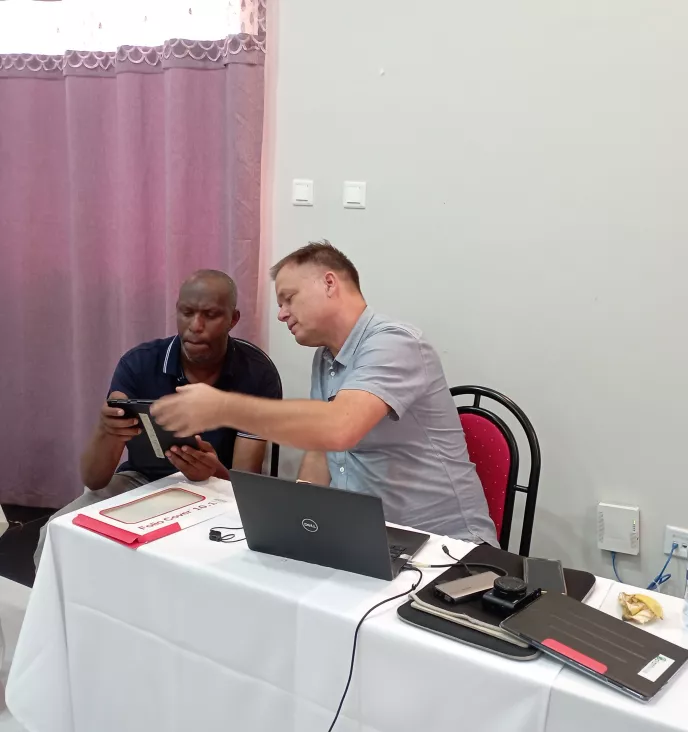
Week #29
Burundi: Improving Burundi's Agricultural Advisory System
Protecting Burundi’s crops through community-building
Climate change and the fast evolution of pests and diseases leads to challenges across the world. As a result, food security is under stress. In Burundi, farmers are faced with poor crop quality and crop losses. Climate change is simply too challenging to keep up with, affecting the local economy, and sending more families to bed hungry.
Although pests and diseases are one of the biggest challenges, farmers often don’t have access to the help of plant health professionals. What’s more, those who do have access to these ‘plant doctors’, often hesitate to reach out, afraid of what news they will hear. Worried about the current situation, plant doctors were looking for ways to strengthen their knowledge and build a positive relationship with local farmers. This is where the #OrangeKnowledge programme offered a solution.
With funding through the Orange Knowledge Programme, a training specifically tailored to the demands of the local plant doctors was created with collaboration between CABI International and Institut des Sciences Agronomiques du Burundi (ISABU). By working together, the organisations realised to launch a training initiative to strengthen the capacities of over 30 local plant experts. The training helped experts to improve their knowledge of pests, diseases, diagnosis, and treatment. The training also trained plant doctors on their advising skills, so that they can provide not only accurate but also reliable farming feedback to farmers.
Nimpaye Philippe is a local agronomist who was trained through the initiative. According to him, the practical training sessions and field visits to plant clinics helped him and his colleagues to relate better to real-life crop management problems. They were able to form connections and share their experience with other professionals. Ndikumana Deo, who was a trainer in the initiatives, expressed that the training had raised the self-confidence of plant doctors alongside strengthening their capacities on pest & disease management. “This is because the training focuses on building a community of plant doctors and other professionals who can supervise and support one another,” said Nibigira Denis, a supervisor of the initiative.
This type of extensive training initiative, running for a longer time and reaching more people, is called a ‘Tailor-Made Training+’ or TMT+ within the Orange Knowledge Programme. Between 2018-2021 a number of 102 of these TMT+ initiatives were granted through funding of the Ministry of Foreign Affairs of the Netherlands.
| Before OKP | Current situation | Upcoming years |
|---|---|---|
|
Farmers have limited knowledge on pests and diseases and rarely seek assistance from plant health professionals, resulting in agricultural loss |
Plant health professionals trained in various pest and disease control methods and ways of giving advice to farmers |
Increase in crop production due to better plant health management, accurately diagnosed crop problems and use of innovative farming tools |
Sustainable development goals: SDG2, SDG4, SDG5 and SDG8.
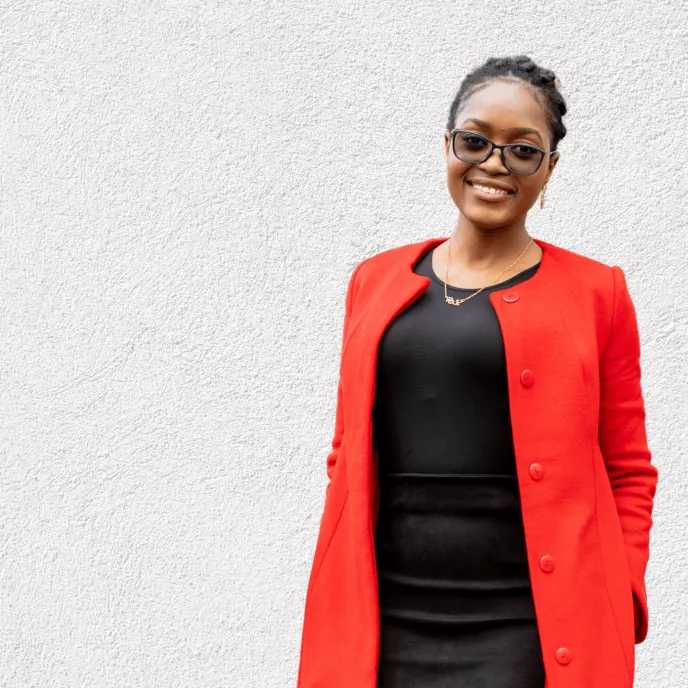
Week #28
Mozambique: SRHR Training for Youth Peer Educators
Did you know that an estimated 52% of Mozambique’s population is below 18 years old?
In Mozambique, people have limited access to sexual and reproductive health and rights (SRHR) information and services. As a result, SRHR-related issues such as early marriage, unwanted pregnancies, and gender-based violence continue to occur. It is important to raise the strengthen knowledge and awareness of young Mozambicans about SRHR.
Our Impact maker this week, Ligia Joaquim Martins da Silva Nkavando, is working at the CDD-Centro Para Democracia e Desenvolvimento in Maputo. As part of her work, Ligia promotes youth leadership for social, economic and democratic progress within communities. Together with 14 other CDD colleagues, Ligia received training trough an Tailor-Made Training+ funded through the #OrangeKnowledge Programme. Ligia was part of the training ‘Training of Youth Peer Educators on Sexual and Reproductive Health and Rights in Mozambique (PET in SRHR)’. This initiative followed a training-of-trainers concept, through which Ligia and her colleagues were trained to become Master Trainers on SRHR.
To reach maximum impact, trained trainers like Ligia started sharing their knowledge by training local youth peer influencers. Ligia has already taught approximately 81 others on how to deal with SRHR-related issues. These young people who now all have a raised awareness on SRHR, act as peer educators, or members of peer groups who receive training to inspire positive changes among peers. With their newly acquired knowledge, groups of youth educators are now working towards forming partnerships with healthcare institutions and local governments for better access to SRHR services and new laws on early marriage. Together, youth is working on a lasting change for Mozambique.
This TMT+ is a collaboration between CDD-Centro Para Democracia e Desenvolvimento, International Institute of Social Studies (ISS) of Erasmus University Rotterdam and the Africa Governance Institute (AFRUGI).
| Before OKP | Current situation | Upcoming years |
|---|---|---|
|
SRHR related issues continue occuring due to the limited access to SRHR information and services in Mozambique |
Training sessions for 15 trainers, 81 peer educators and youth; health facilities providing access to SRHR services and local government is enforcing new SRHR laws |
Spreading of knowledge and training will continue to more areas of Mozambique and will benefit more than 5000 people |
Sustainable development goals: SDG3, SDG4, SDG5 and SDG17.
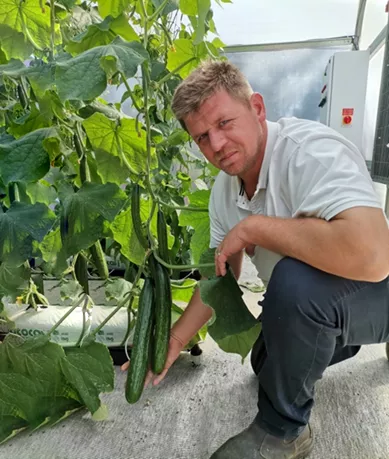
Week #27
South Africa: Strenghtening the skills of smallholders and emerging farmers
Farmers in South Africa, particularly in the Boland region, are working hard to meet the increasing agricultural demands of their community. But, they do not always have the updated technological developments or skills to maximise their farming production. The Tailor-Made Training+ (TMT+) ‘To address the lack of skills of emerging commercial farmers and processors in South Africa’ aims to train and provide the necessary practical skills for farming professionals to implement into their greenhouse cultivating practices.
Vincent Uys is the Programme Manager of this TMT+. He conducts training sessions, arranges field visits and develops learning materials adapted to the needs of local farmers. One of the things he finds important is for farmers to have updated knowledge on smart water farming that maximises the water usage in an arid country like South Africa. Moreover, he also aims to educate more women and children about food security in the country, guiding them to find ways of contributing to this issue.
In his training sessions, Vincent’s main objectives are educating and making his community aware of the different types of sustainable agricultural practices best suit for their greenhouse farming conditions. Besides sharing his expertise, Vincent is also learning from the real-life experiences of his training participants and the farming consultancy companies that this TMT+ partners with. He then incorporates this knowledge as part of the improved course modules.
The practical assignments, localised workshops and sharing of experiences in this TMT+ supports the Boland agricultural community to co-operate with one another. The TMT+ also stimulated entrepreneurship and enhanced greenhouse management methods. Not only were participants learning from trainers, trainers like Vincent were also enlightened by the experiences farmers encounter daily. By learning from one another, farming professionals are working together towards food security in South Africa.
This TMT+ is a collaboration between Boland College and Q-Point Consultancy, Delphy B.V. (Delphy International), Maastricht School of Management and Stellenbosch University.
| Before OKP | Current situation | Upcoming years |
|---|---|---|
|
There was a need to acquire updated skills in sustainable farming methods and technological developments in South Africa |
Professional training on farming professionals on maximising agriculture production, greenhouse technology and food security |
Experts apply their practical knowledge to their farming practices, increasing the quality of crop production, processing and storing |
Sustainable development goals: SDG1, SDG2, SDG4 and SDG8.